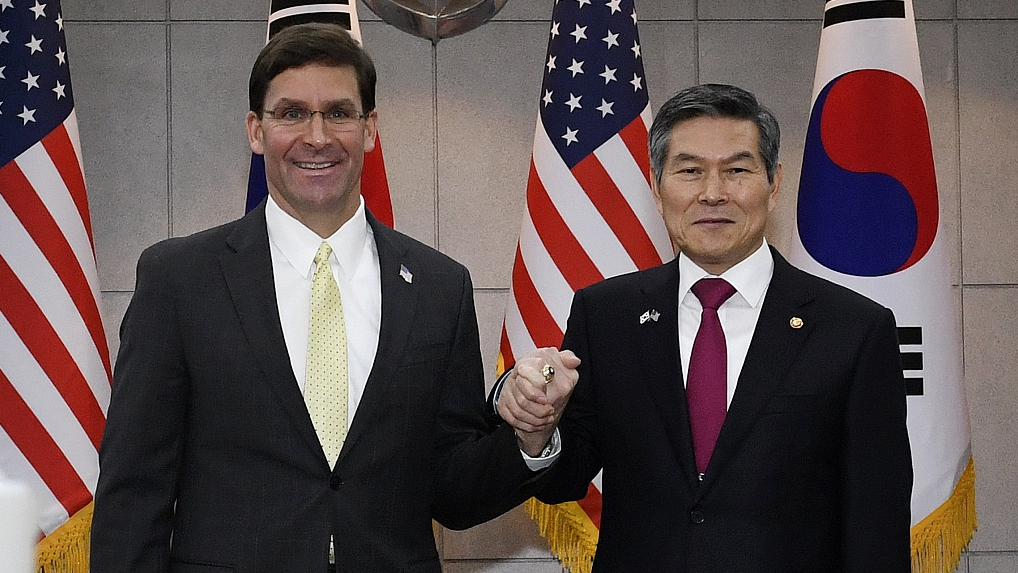The United States on Thursday denied a news report that it was considering withdrawing up to 4,000 troops from the Republic of Korea (ROK) if it does not pay more for maintaining a 28,500-strong U.S. contingent in the country.
Chosun Ilbo, an ROK newspaper, reported that the withdrawal of a U.S. brigade, typically 3,000 to 4,000 soldiers, had been discussed with the top brass of the U.S. military in the ROK, citing an unidentified diplomatic source in Washington.
How has the U.S. responded?
The report came two days after the U.S. broke off defense cost talks after demanding that the ROK raise its annual contribution for maintaining the U.S. contingent to five billion U.S. dollars, an ROK official said, more than five times what it pays now, in rare discord in the alliance.
"There is absolutely no truth to the Chosun Ilbo report that the U.S. Department of Defense is currently considering removing any troops from the Korean Peninsula," Pentagon spokesman Jonathan Hoffman said in a statement.

U.S. Defense Secretary Mark Esper and ROK Defense Minister Jeong Kyeong-doo (R) pose before their meeting in Seoul, November 15, 2019. /VCG Photo
U.S. Defense Secretary Mark Esper and ROK Defense Minister Jeong Kyeong-doo (R) pose before their meeting in Seoul, November 15, 2019. /VCG Photo
U.S. Defense Secretary Mark Esper said earlier he was not aware of any plans to withdraw troops from ROK if cost-sharing talks failed. "We're not threatening allies over this. This is a negotiation," he told reporters during a trip to Vietnam.
The White House did not immediately respond to a request from Reuters for comment.
How has the ROK responded?
The ROK remains technically in a state of war with nuclear-armed neighbor the Democratic People's Republic of Korea (DPRK) following their 1950-53 conflict.
The DPRK has also developed a missile believed to be capable of firing a nuclear weapon at the U.S. mainland.
The ROK defense ministry said the Chosun report was "not the official position of the U.S. government" while Foreign Minister Kang Kyung-wha told a parliamentary panel no cut in U.S. troops had been discussed.
What's the background?
The allies have for 70 years formed a buffer against the DPRK but their failure to agree on an increase in the ROK's contribution to the costs of hosting the U.S. troops has raised questions about the deployment.
After U.S.-ROK talks broke down this week, each side blamed the other for being unprepared to compromise on sharing the costs of the U.S. deployment.
U.S. law stipulates its troop presence in the ROK must not fall below 22,000 unless the Secretary of Defense justifies a further reduction to Congress.
(With input from Reuters)
Source(s): Reuters